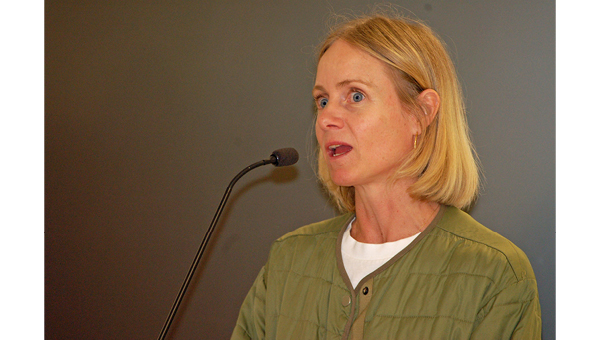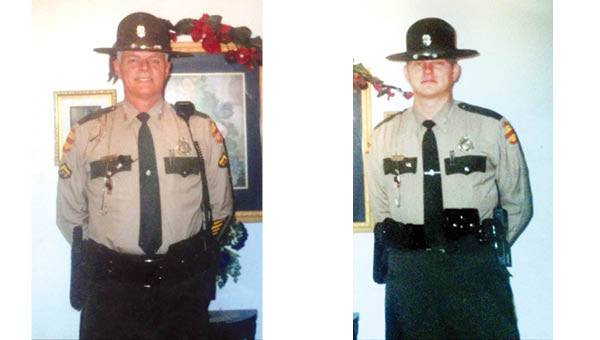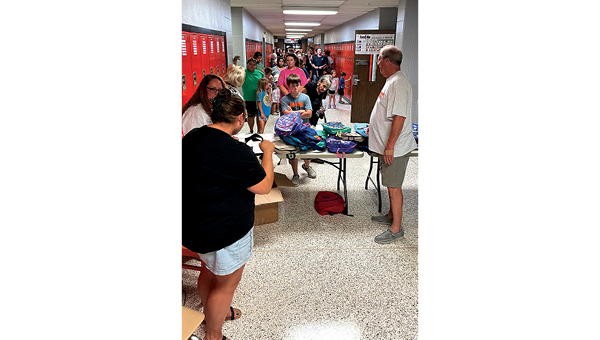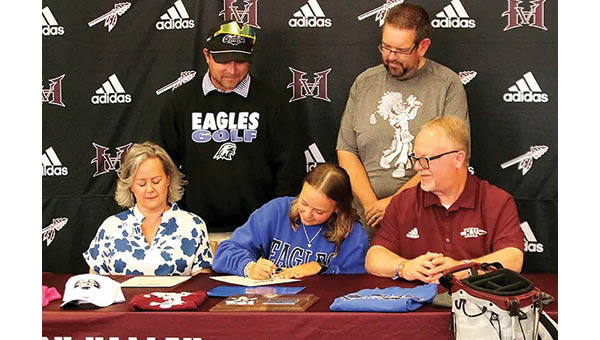EHS students’ true-crime project focus of documentary, possible live-action film
Published 5:07 pm Monday, September 23, 2024

- Buzz Trexler/Star Correspondent/Award-winning documentarian Stacey Lee talks to the Elizabethton City School Board during Thursday night’s regular meeting.
|
Getting your Trinity Audio player ready...
|
By Buzz Trexler
Star Correspondent
The investigative process and groundbreaking results of Alex Campbell’s sociology class at Elizabethton High School, which has intrigued true-crime listeners worldwide as the popular “Murder 101” podcast, is moving from earbuds to a larger screen and potentially an even larger audience.
Trending
During the recent Elizabethton City Schools Board of Education meeting, board members approved the release documents for students and staff members of EHS to participate in a documentary related to Campbell’s class and the “Murder 101” podcast by KT Studios LLC. According to the agreement, the window for filming at the high school began Friday and will extend until May 31, 2027.
KT Studios and iHeartRadio propelled Campbell’s project-based learning assignment that solved a 40-year-old serial killer mystery into a true-crime podcast that’s received global attention.
But the global exposure of the Elizabethton City School system and the small town in Northeast Tennessee may not end with the podcast, or the documentary.
Over the summer break, Amazon MGM Studios beat out numerous studios for the “Murder 101” package in what the media outlet Deadline reported was “a brisk auction” with “numerous studios in the fray.” (A headline on KT Studios’ website referred to the auction as “feverish.”) The film is slated to be directed by Jon Watts of “Spider-Man: Homecoming” and “Star Wars: Skeleton Crew” fame. Watts will be joined in the production by his wife, Dianne McGunigle, and KT Studios founder Stephanie Lydecker.
During the 2018 school year, Campbell’s sociology class started a project where they investigated a series of cold-case murders dubbed “The Redhead Murders” that took place in and around the state of Tennessee in the 1980s. With the aid of various investigators, including an FBI behavioral analyst, Campbell’s students developed a theory that six of the Redhead Murders fit the profile of the same killer and eventually described him as “The Bible Belt Strangler.”
In 2019, the Tennessee Bureau of Investigation and the Campbell County Grand Jury determined that at least one of the victims – Tina Marie McKinney Farmer, whose body was found Jan. 1, 1985, along Interstate 75 in Campbell County – died at the hands of Jerry Leon Johns. Johns was convicted on unrelated charges of aggravated kidnapping and assault but died while in prison in December 2015 before new leads were developed in the Farmer case.
Trending
The “Murder 101” podcast that tells the story of Campbell’s class and their true-crime investigation was released in January. Campbell told board members Thursday night it reached No. 1 in 12 different countries and No. 2 in the U.S. and has been heard by millions of people.
“So, really it excites me because people all over the world hear about the kind of students we have and the kind of work they can do,” Campbell said.
‘Frontier of 2024 Learning’
One of the people who heard the podcast was Stacey Lee, the documentarian behind “The Secrets of Hillsong,” a four-part documentary series on FX. The series is based on reporting by Vanity Fair journalists Alex French and Dan Adler who delved into the international megachurch’s scandals. Lee, who was present Thursday night, also directed “Live Fast Draw Yung,” “Underplayed,” “The Code,” and “Olivia Rodrigo: Driving Home 2 U,” winner of the 2022 MTV Award for Best Music Documentary.
Lee told board members she believes Campbell’s project-based approach to education is the “frontier of 2024 learning.” Lee, who is from New Zealand, said she thinks people are drawn to the story of students helping to solve the cold case, but “learning about the victims, developing empathy, developing the skills to understand why, how these kind of incidents happen, is incredibly powerful stuff,” the filmmaker said.
Lee has already been to two classes and said she was impressed with the growth and confidence the students had in telling what they have learned and where they are going.
“I believe this project will obviously not only change people’s perceptions of what students are capable of, what teenagers are capable of, but I think it will change perceptions on a lot of fronts,” Lee said.
Positive Expectations
Campbell said in a phone call Monday that a film crew was in town about six weeks ago capturing footage for a trailer. Watts has twice visited Elizabethton and “he loves the community,” Campbell said.
“You know, I talked to them before we agreed to sign on,” Campbell said. “I wanted to make sure it was the right fit. So, I think they’re going to be great. I think they’re going to really show people around the world our community and our town and our school and our young people and what it’s about. And I think it’s going to be something that the community can be proud of, you know.”
The sociology teacher said too often young people are portrayed in a less-than-flattering manner on TV and movie screens, and during pre-production discussions for the podcast, and now the documentary and proposed film versions, he made it clear there were certain expectations.
“The kids are young, but they’re hard-working and they care, and you know they can do big things if you trust them and help them, and that’s what I told them,” Campbell said before explaining these were the agreed-upon expectations:
— The production would not be a “slasher film,” but something that would try to help the victims and their families.
— It would provide a positive portrayal of education.
— It would be “true to who our community is” and would not be rewritten “where it happens in inner-city LA.
“I think we want to tell the story of this place and these students, and they all felt really passionate about that, that we should do that,” Campbell said. “So, I think it’s going to be something that we can really be proud of.
“I mean look, let’s just be honest, many times Appalachian communities don’t get the best representation in movies and TV shows,” he said.






